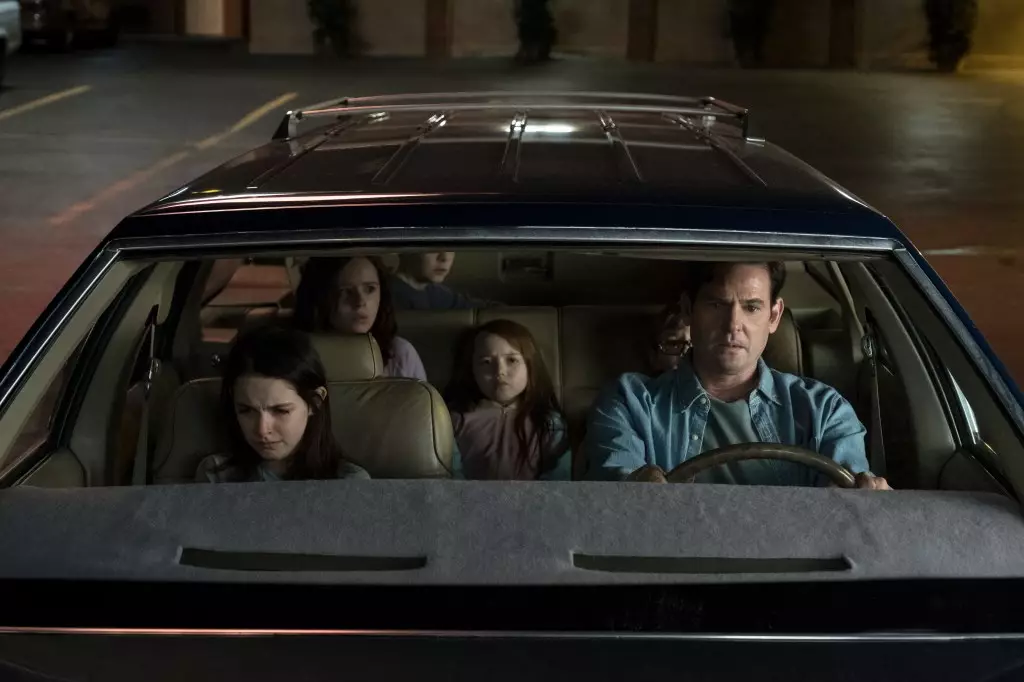Mike Flanagan stands at the forefront of modern horror, not merely as a director but as a profound storyteller who deftly transforms his personal pain into compelling narratives. At a recent SXSW event, he poignantly shared how his struggles with grief and loss have played an instrumental role in shaping his artistic vision. His Netflix series, *The Haunting of Hill House*, is not just a horror drama; it is a raw exploration of the human condition, imbued with the haunting specter of loss following a family tragedy. Flanagan’s admission that the portrayal of Nell Crain’s suicide parallels his own experiences serves as a stark reminder of the emotional weight behind the genre—a weight often overlooked by critics who dismiss horror as mere entertainment.
Horror, as Flanagan argues, is a medium rich with potential for exploring deep psychological themes. In a world that often seeks to trivialize emotional pain, Flanagan’s willingness to confront his own vulnerabilities head-on sets a bold precedent that resonates not only with those familiar with grief but with anyone who yearns for a deeper understanding of their struggles. His work becomes more than a coping mechanism; it is an act of rebellion against the societal stigmatization of mental health issues, and a call to embrace the stark realities of life through the lens of artistic expression.
The Perception of Horror: A Misunderstood Genre
Flanagan’s criticism of the persistent “bias against horror” underscores a critical dialogue within the film industry. Despite its long-standing popularity, horror often finds itself relegated to a tier beneath more ‘serious’ genres—a misinterpretation that Flanagan challenges by pointing to masterpieces from visionary creators like Jordan Peele. Though horror can unearth visceral fears, it is also an arena ripe for nuanced storytelling, laden with complex characters and rich emotional landscapes.
This perennial dismissal of horror as a serious art form reflects a broader cultural tendency to view vulnerability as weakness. Yet, Flanagan’s resounding message emphasizes that horror can serve as the perfect vehicle for examining the human experience—including themes of grief, loss, and identity. By shedding light on these darker corners of existence, horror invites audiences to confront their fears, making it a valuable, if underappreciated, genre in the cinematic landscape.
Celebrating Emotional Depth in Storytelling
As Flanagan articulately champions the artistic merit of horror, he also shines a spotlight on the importance of eloquent monologues in cinematic storytelling. In a time when films risk succumbing to the pressure of rapid pacing and soundbite culture, Flanagan’s defense of the monologue stands as a passionate advocacy for depth in dialogue. He perceives the monologue not merely as a storytelling tool, but as an opportunity for actors to convey transformational emotions that can alter the reality of the narrative.
In many ways, this advocacy epitomizes Flanagan’s approach to storytelling itself. By allowing moments of introspection and reflection, he creates space for emotional resonance within a genre often guilty of sacrificing depth for shock. Filmmakers must resist the urge to dilute these moments, no matter the pressures of studio run times or audience expectations. The battle for meaningful expression in horror, as Flanagan shows, is a vital one, and it is a battle that needs allies willing to confront the overt simplification of narratives.
A Partnership with Stephen King: More than Just Horror
As a frequent collaborator with Stephen King, Flanagan finds himself navigating literary landscapes that blur the lines between horror and humanism. While King is often categorized as a horror writer, Flanagan insightfully reframed him as a “gooey-hearted, lovely humanist.” This characterization reflects the overarching truth behind King’s narratives: they often explore the emotional tapestry of human relationships and existential dilemmas masked by genre conventions.
Flanagan’s approach to adapting King’s works mirrors his own philosophy—life’s complexities cannot be distilled into simple horror tropes. When discussing iconic stories such as *It*, he highlights how the true essence lies in the bonds of friendship and resilience within adversity, casting light on the human condition. This lens not only enriches the horror experience but also elevates the genre as a medium capable of pondering profound philosophical questions about existence.
Through Flanagan’s films, audiences are not simply spectators of terror; they are invited on a journey of self-discovery through the darker alleys of imagination. His artistry serves as a reminder that horror is not just intended to scare, but to reveal, to heal, and, ultimately, to resonate with the deepest truths of the human experience.



Leave a Reply